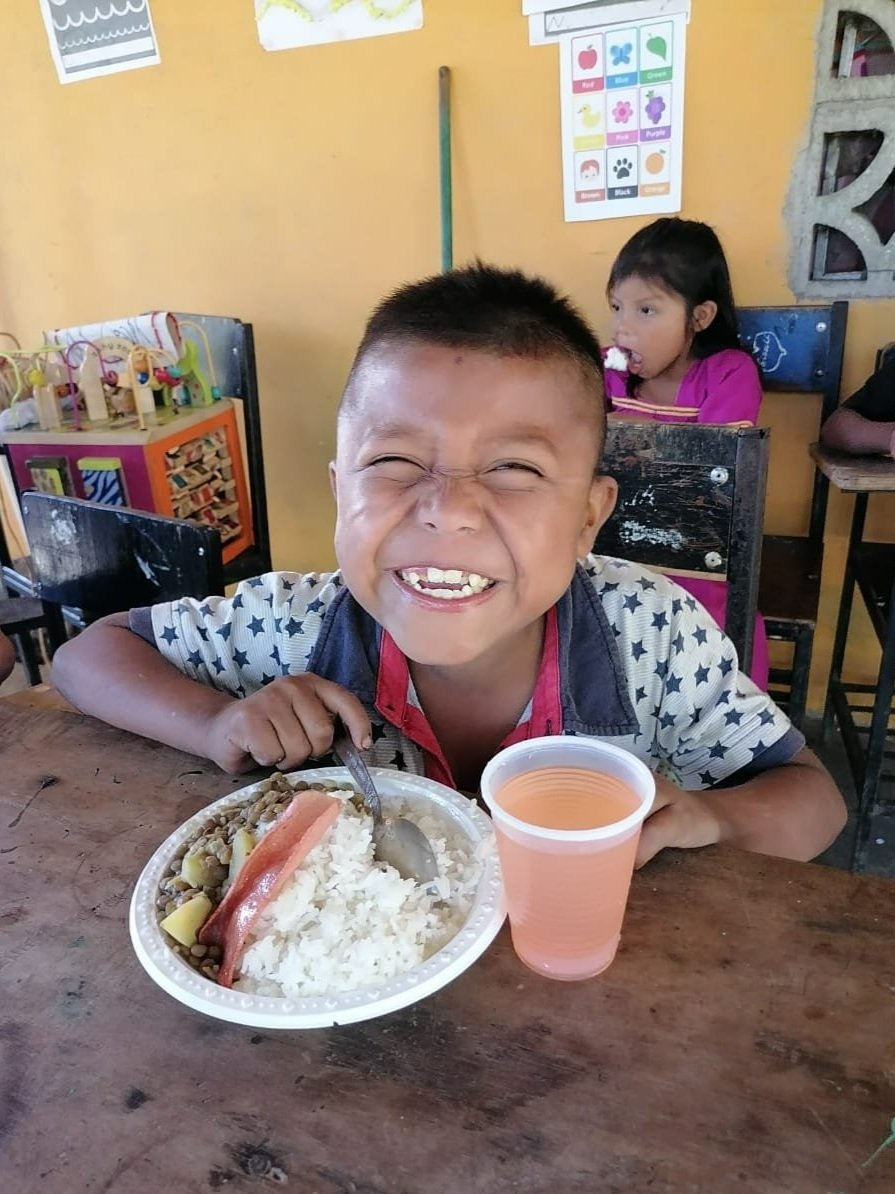Food Insecurity & Malnutrition
Curbing food insecurity in children one healthy meal at a time
DTCare initiated a school gardening and meal program at our pre-school in Monte Lirio when we learned that several learners arrive at school hungry each day. The initiative reduces food insecurity among the school's learners while building community in and outside the classroom. Teachers, with the occasional help from learners, tend the school's vegetable garden enabling the school to provide healthy, nutritious breakfasts and lunches for learners to combat hunger and malnutrition. Undernourishment is directly linked to poverty and is one of the leading causes of growth stunting. Stunting is prevalent in 15.8% of Panamanian children under 5 years old. In an effort to prevent the adverse effects of hunger and a lack of sufficient nutrition, DTCare started the school meal program. Homemade meals from fresh, organic ingredients ensure that no learner is left hungry during the day.
In many cases, the meals children receive at school are the only whole meals they eat daily. The school garden features a variety of essential and staple foods critical for a balanced diet, including corn, tomatoes, cucumbers, and beans. Aside from being a means to ensure adequate nutritional intake, the garden is also educational in that the learners who participate in tending the garden learn and practice fundamental gardening skills and a sense of community. The garden serves as a dependable source of essential foods and a hands-on educational project for the learners. Food insecurity not only causes severe suffering and has adverse effects on a child’s health and development, but hunger also impacts learning. Undernourishment hinders a child’s ability to focus and retain information; curbing food insecurity is critical to enabling children to learn effectively.
The School Vegetable Garden
Malnourishment in children occurs when they lack essential nutrients resulting from hunger or an insufficient and unbalanced diet. In Monte Lirio at DTCare’s pre-school, poverty is a leading cause of food insecurity. To combat hunger and undernourishment among school children, DTCare provides healthy, balanced meals daily. The growing vegetable garden helps the school supplement some of the staple foods the daily breakfasts and lunches include, such as tomatoes and beans, while other foods are purchased monthly to ensure that the meals contain sufficient nutrients essential for health and development.
DTCare’s small but specialized educational team tends the garden and harvests the produce with the occasional help of some of the older learners. The meals are freshly prepared daily with ingredients directly from the school vegetable garden. The benefits of the school vegetable garden are multifold:
curbing undernourishment and hunger,
building community in and outside the classroom, and ultimately,
giving children a better chance of healthy development and learning effectively.
Food Aid for Babies and Toddlers
Baby formula and specialized baby foods are unaffordable for families struggling to make ends meet in developed countries; the baby formula is not only expensive in developing countries but inaccessible. Undernourishment in babies and toddlers can have severe effects on growth, mental development, and health. The severity of the challenges parents and caregivers face in the underserved communities in Panama where we work and receive a bulk formula donation led to the expansion of DTCare’s humanitarian efforts to provide critically needed baby food aid and support. To end suffering, especially for women and children, forms part of DTCare’s core mission. “We strive to end generational suffering, especially for women and children, and to reduce poverty - to aid those impoverished of access to essential resources, aid, and opportunity.” Undernourishment in babies and toddlers can severely affect growth, mental development, and health. DTCare is working to curb hunger for children and babies in the Monte Lirio and surrounding communities.
“We strive to end generational suffering, especially for women and children, and to reduce poverty - to aid those impoverished of access to essential resources, aid, and opportunity.”


Breakfast and Lunch Served Daily
Children showed indicators of malnourishment, frequently suffering from colds, rashes, diarrhea, and stomach pain due to unsanitary conditions at home and poverty resulting in a limited diet. Due to inflation and skyrocketing food prices, staple foods are becoming unaffordable for many low-income households. Essentials such as rice and oil are getting too expensive rendering many households unable to follow a balanced, nutritious diet. DTCare’s commitment to reducing hunger in Monte Lirio begins at our school, so no child is left to learn on an empty stomach. We are battling food insecurity with hearty, traditional breakfast and lunch school meals that promote healthy growth, development, and learning in children.
According to the Centers for Disease Control and Prevention (CDC), healthy nutrition during childhood minimizes health complications later in life as eating healthy supports brain development, boosts immunity, strengthens bones, and supports muscle growth. Teachers are already noticing the impact of the garden and meal program in that the children are healthier and have stronger immune systems, showing improved concentration, and an eagerness to learn in class.










